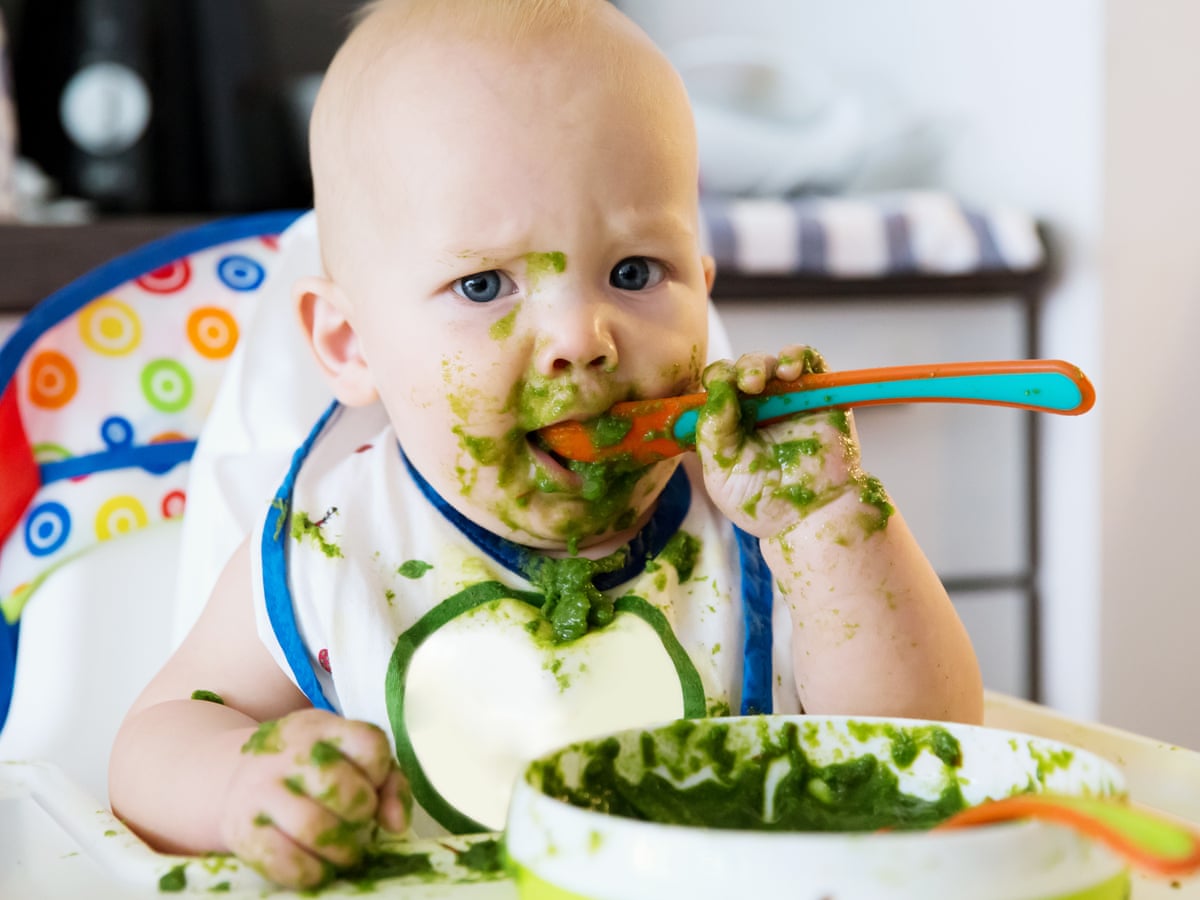How much does your baby need to eat?
A newborn may eat too much. If they're going through a growth spurt they will be hungrier and may try to nurse more often than normal. A good way to know if your baby is getting enough milk is to watch for several signs of an overfed infant:
You can tell if your baby is full by watching their nursing habits and the amount of time it takes them to do so. It should take around 10-15 minutes for one side. Some babies are faster or slower than this but this is just a general guideline:
If you notice that your baby has "cluster feeds" during one part of the day and then appears very hungry at other times then it likely means that he/she isn't satisfied after their cluster feeding and needs more milk.
If your baby is gaining weight but wetting fewer diapers than usual or having fewer bowel movements, he/she may be getting too much milk. Babies will vomit if they eat too much and this is usually a good way to tell that they've had enough.
Norms for a newborn babies eating habits
A newborn should nurse 8-12 times in a 24 hour period. If they are cluster feeding, then they may want to nurse more often than this. On average, a newborn will drink 4-6 ounces per feeding. This amount will increase as they grow. Babies usually have 3-5 bowel movements per day during the first few weeks of life and will wet 6-8 diapers. Again, these numbers vary from baby to baby.
Calories per day for a newborn
According to the World Health Organization, a newborn needs approximately 55-75 calories per kilogram per day. This amounts to around 300-450 calories per day. If your baby is gaining weight then he/she is likely getting enough to eat.
So, thus, a newborn typically needs around 500-600 calories per day. Again, this varies depending on how much they are nursing and how fast they are growing.

How many calories are in breastmilk?
There is no definitive answer to this question. Breastmilk does not have a set calorie count like other foods do. It changes depending on how much the mother eats, how hydrated she is, etc. However, it is estimated that breastmilk has around 20-35 calories per ounce. So, a newborn would consume around 160-245 calories from breastmilk in a day.
So, while it is possible for a newborn to eat too much, they are more likely to not be getting enough milk if they are nursing frequently and gaining weight. If you are concerned that your baby is eating too much or not enough, speak with your pediatrician. They will be able to help you figure out what is best for your baby.
How to choose nice formula for your baby?
When a baby is about to be born, the parents have to decide what type of formula to use. The choice can be difficult because there are many different types of infant formulas on the market these days. Some are made with cows' milk and others are soy-based. There are also organic formulas and formulas that are designed for premature or low birth weight infants.
Parents should decide which type of formula to buy by thinking about their baby's nutritional needs. If the baby is premature or has a low birth weight, then they will need a special formula that is designed for them. If the baby is allergic to cows' milk, then the parents should buy soy-based formula. Or if the parents want their baby to eat an organic diet, then they can choose the organic formula.
There are other types of infant formulas including the baby formula for special needs babies and standard baby formula. Parents should talk to their pediatrician about which type of formula is right for them.
Is it dangerous for your baby to eat too much formula?
If you don`t breastfeed your baby or if you can`t breastfeed your newborn, it is not healthy to feed your baby too much formula. Because too much of formula can make your baby tired, irritable and may even cause anemia (low level of iron in the blood) because all formula has similar ingredients like cow's milk which contains very little iron.
If you do want to give your newborn a bottle of formula, remember that a newborn will only need 2-3ounces at a time. Any more than this could lead to weight gain issues as the baby grows. It's important not to overfeed them with formula either so watch for signs that they have had enough as well as how often they are eating throughout the day.
Last but not the least, if you are still undecided on whether to breastfeed or formula feed, please consult with your doctor to get more personalized advice.
Signs of overfeeding your baby
- Cluster feeds throughout the day
- Your baby is gaining enough weight but still nurses very often
- Your baby appears uncomfortable at times with lots of fussing, crying, etc.
What should you do in case of overfeeding?

If you notice that your baby is gaining weight, yet has colic or diarrhea, then he/she may be getting too much milk. If they are fussy and seem uncomfortable after they eat then it's likely that they're full. Try not to overfeed them and watch for the signs above of how much your baby really eats.
Newborns can sometimes be fooled into eating too much by their parents if they want to keep them satisfied and happy. It's important to let them know when they've had enough so as not to overfeed them.
Signs of underfeeding your baby
- Wetting fewer diapers than average or fewer bowel movements than average for his/her age group
- Hungry all the time despite feeding well during cluster feedings If you are concerned about how much milk your newborn is getting, talk to your pediatrician. They will be able to give you advice based on what is normal for their age and growth rate.
What should you do in case of underfeeding?
If you notice that your baby is wetting fewer or fewer diapers than average based on their age or having fewer bowel movements, then they may not be getting enough to eat. If they also seem hungry all the time despite cluster feedings, then this may be an issue too. Discuss these concerns with your pediatrician for advice on how much milk your baby should be taking in.
What if you don`t have enough milk?
If you are struggling to produce enough milk for your newborn, there are a few things that you can do:
- Make sure that you are drinking plenty of fluids and eating healthy foods.
- Try nursing more often and expressing milk after nursing. This may help increase your milk supply.
- See a lactation consultant who can help you with proper breastfeeding techniques and offer other advice.
Babies will naturally eat what they need and if you are producing enough milk, then they will get all they need. If you are still concerned, please speak to your pediatrician.
Other reasons of your baby eating too much
However, sometimes there are other causes that lead to your newborn baby eating too much.
One of these reasons is the cleft palate. A Cleft palate is a birth defect that causes babies to eat more than they should because food goes down the wrong pipe and into their lungs instead of the stomach. There are surgical procedures available but it would only work out if it is done before 6 months old, otherwise, it can't be fixed anymore after 6 months old.

Another reason is just simply not having enough supply for your baby's needs. If you notice that your breast milk supply has suddenly gone down while you haven't changed anything in your diet or habits then this could be possible that you have insufficient glandular tissue (IGT) or insufficient milk supply for breastfeeding. IGT means there's not enough glandular tissue to make milk. It's estimated that up to 4% of women have insufficient IGT.
Another reason is sleeping too much during the day makes your baby not hungry enough or too full for breastfeeding during the night. Your newborn will only need to feed once in between 6-12 hours during their first 4 weeks of life and then increase gradually to be fed every 3-4 hours.
Satiety cues
Satiety cues, which is what your newborn baby does to let you know they've had enough, or that their tummy feels full, can be a little hard to figure out at first. Your baby might appear as if he/she was done feeding but then has more. This happens as the child is not quite coordinated enough to make it clear when he/she's had enough milk and keeps sucking on the nipple even though they don't need it anymore.
Don't try pushing them off of one nipple and switching to another as this may cause nipple confusion . Just keep an eye out for signs and offer the other side every now and again (a few times during cluster feedings) but also expect that your baby will most likely want nothing to do with the other side at all.
Bottom line
So, can a newborn eat too much? It depends on how much they are taking in and if they are gaining weight as they should. If you are breastfeeding, watch for signs of overfeeding such as fussiness and discomfort after eating.
If you are formula feeding, be careful not to give them too much at a time or they may experience weight gain issues down the road. Always consult with your pediatrician for more personalized advice. Thanks for reading!